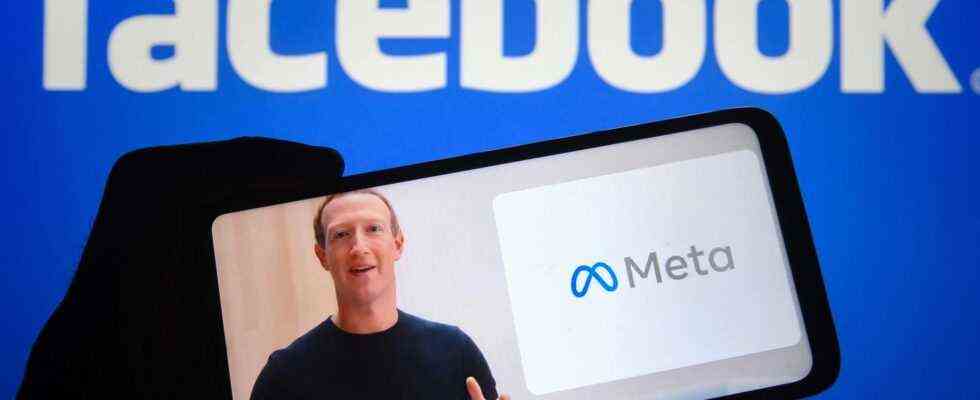Facebook is now called Meta
Zuckerberg’s escape into virtual reality: This is the strategy behind Facebook’s new name
In a virtual conference, the former Facebook and now Meta boss Mark Zuckerberg announced the new direction
© Pavlo Gonchar // Picture Alliance
In the midst of growing scandals and revelations, Facebook is changing its name. And the company idea. With this, the group wants to equip itself for the future. And escape your current political problems into virtual reality.
The current storm of allegations is fierce, even by Facebook standards: The company is supposed to make profits over the well-being of its users, have massive problems in the fight against false reports, malicious content such as hate messages and illegal activities such as human trafficking and harm society with its algorithm – and know that yourself. This is based on internal documents of the group, which were pierced by the ex-employee Frances Haugen. Now the company name has been changed. This is likely to be at least indirectly related to current developments.
The company, now called Meta, wanted to avoid this impression. “We started long before the breaking news, they had no influence on it,” said Mark Zuckerberg quickly to a conversation with “The Verge”. Although he understands why some would think of it. “I think it’s a bit ridiculous. If anything, the current climate is more damaging if you want to introduce a new brand.” The Facebook founder remains at the top of the new group.
The metaverse as a refuge
In fact, the renaming and the associated realignment of the group should have been in the planning for at least several months, so a pure reaction to the current revelations is excluded as a reason. And yet the problems and the realignment are pretty clearly related.
Because the so-called metaverse, the next level of the Internet evoked by the corporation of the same name, should not only enable us to get lost in numerous virtual realities offered by the corporation. It should also represent the opportunity to let the numerous very real political problems of the group become a relic of the past. This is indicated by extensive research by the Washington Post in the process of renaming.
The new beginning as an opportunity
Facebooks and its top managers are therefore trying on a large scale to inspire politicians, think tanks and regulators for the new metaverse. The current initiative is primarily about anticipating possible objections to the new technology, reports the newspaper, referring to numerous participants in the talks. For example, the group wants to develop ethical standards and technical protocols for such a virtual world in advance in order to anticipate moral and monopoly fears among the legislators.
In fact, Zuckerberg himself confirms that the new direction represents an opportunity in this regard. In the last five years you have often had to learn the hard way that some existing functionality of your own platforms would cause problems, he confessed to “The Verge”. Changing them afterwards was often difficult. “It will no doubt be better to put these things in from the start this time around.” As examples, he cites the protection of privacy and the possibility of protecting yourself from unpleasant treatment by other users. This time, you would think about both when building the platform, emphasizes the Facebook founder.
Zuckerberg is fed up with politics
Apparently, however, he does not interfere in the negotiations. Zuckerberg made it clear to his employees that he no longer wanted to be involved in such matters, writes the “Post”. Zuckerberg had to testify before the US Congress three years ago. At that time it was about monopoly allegations against the group, which are not yet completely off the table. Today, the group’s efforts are mainly driven by Zuckerberg confidants Sheryl Sandberg and Nick Clegg.

The main concern of the group’s move is to convince the legislators in Washington that the group can get its obvious problems under control and that no legal regulations are necessary to force it to do so. The chances of this are good, believes media researcher Joan Donovan from the US elite university Harvard. “As long as technology feels fresh, new, and cool, it’s easier to prevent regulation,” she told the Washington Post. “You can then drive this line of defense for several years while the government lags behind developments.”
Sources: The Verge, Washington Post


